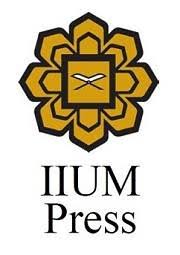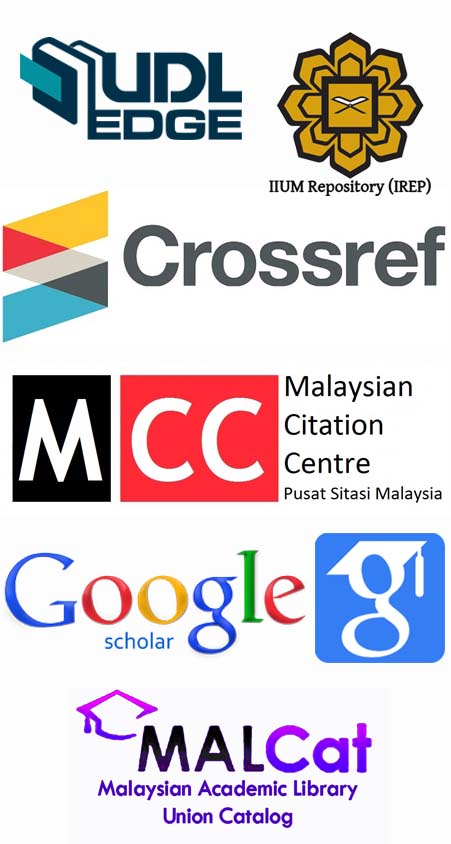EDITORIAL
DOI:
https://doi.org/10.31436/alburhn.v8i1.344Abstract
The February issue of Al-Burhan journal commences with an illuminating exploration into the profound realm of Maqāṣid al-Qur’ān. This meticulous analysis unveils the inherent noble goals of preservation, justice, compassion, and knowledge within the Quranic framework. By adeptly integrating expert insights and diverse methodologies, the study not only sheds light on the nuanced understanding of Maqāṣid but also accentuates its enduring relevance across varied contexts and epochs. It eloquently advocates for a just and compassionate way of life rooted in Islamic principles, fostering harmony among diverse communities, while poignantly emphasising the Qur’ān’s profound significance as a timeless source of divine wisdom.
The subsequent article ventures into an examination of critical thinking from a Quranic perspective, highlighting the deficiencies in conventional education systems. It stresses the imperative of integrating ethical, moral, and spiritual dimensions into traditional frameworks, recognising knowledge beyond the empirical. Drawing parallels between Quranic teachings and Western models, the research aims to promote a comprehensive approach to critical thinking. By prioritising moral and spiritual growth alongside technical skills, it challenges prevailing educational paradigms and advocates for holistic development.
Understanding the communication methods of Prophet Mohammad (SAW) holds paramount importance for both Muslims and non-Muslims seeking to emulate his sunnah. Through a comprehensive archival study of ahadeeth in Sahih Al-Bukhari, the subsequent article unveils quantitative insights into the verbal and nonverbal communicative elements employed by the Prophet. This research provides valuable insights into Prophet Mohammad's communicative example, guiding successful messaging and adherence to his Sunnah.
The halal certification process undergoes a thorough analysis in the fourth article, utilizing Quranic verses and Shariah principles as guiding benchmarks. By focusing on legislation, practicality, harm elimination, and positive impact, the research evaluates market leaders across various sectors. It emphasises the necessity of incorporating Shariah principles in understanding customer demand, especially in sectors such as processed food and clothing. Ultimately, the research aims to foster economic and social growth through the production and consumption of more halal products and services.
The fifth article delves into the importance of applied research in driving societal change, particularly in addressing pressing issues such as food shortages exacerbated by population growth. Despite the absence of explicit mention in the Qur’an, the study adeptly demonstrates the relevance of applied research in enhancing agricultural productivity. Through illuminating examples from diverse contexts, the research highlights the indispensable role of applied research in addressing societal issues and fostering tangible positive transformations.
A nuanced exploration of human evolution from an Islamic standpoint is presented in the sixth article, navigating the tensions between scientific theories and religious beliefs. By highlighting the centrality of mankind's creation in Islamic theology and contrasting it with evolutionary concepts, the article prompts critical reflection and scholarly inquiry. It highlights the importance of a thorough understanding of both Islamic teachings and biological evidence in addressing this contentious issue.
The seventh article offers a comprehensive examination of women's political engagement in Iraq post-2003, shedding light on their significant strides despite facing numerous challenges. Through historical, descriptive, and political analysis, the text underscores the noteworthy involvement of Iraqi women in governmental and parliamentary roles, showcasing their ongoing efforts to promote progress within the political system.
Moving to the first Arabic article in this issue, the study meticulously examines the foundational principles of political authority in Islam. It highlights the consensus among Islamic scholars regarding the state's role in ensuring the welfare and happiness of citizens, emphasizing justice, trustworthiness, truth, and freedom in political governance.
The ninth article addresses the humanity of individuals in their interactions with people of diverse faiths, emphasizing humane relations devoid of violence, extremism, and selfishness. By illuminating the Prophet's (SAW) interactions with non-Muslims, the research seeks to promote justice and generosity that transcend religious, sectarian, societal, and cultural boundaries.
Finally, the insightful study delves into the religious dimension of the African identity crisis, examining the resistance against Western colonization in West African countries. Through a theoretical framework grounded in historical sources, the research underscores the enduring influence of figures who resisted colonial encroachment, preserving Islam's significance in Gambian society.
In summary, the February edition presents an array of scholarly contributions that meticulously examine various facets of Islamic thought, historical narratives, and contemporary challenges, all deeply rooted in the teachings of the Qur'an and Sunnah. These articles collectively enrich the understanding while fostering rigorous discourse, transcending the confines of academia to engage a broader audience.
Nurul Jannah Zainan Nazri
Editor
Al-Burhan Journal of Qur’an and Sunnah Studies
Downloads
Downloads
Published
How to Cite
Issue
Section
License
In general, reusing or reproducing substantial portions of al-Burhān content requires permission. This includes the use of text, figures, tables, multimedia content, and any other material published in any issues of al-Burhān Journal of Qur'an and Sunnah Studies. For some instances, al-Burhān may make its content freely viewable; however, such material may require permission for reuse. To seek permission, please contact the editorial.









